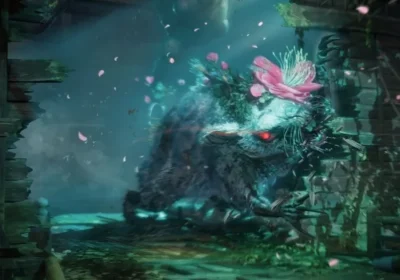The Moon Is Beautiful Isn’t It – Japanese Secret Love Confession
The moon is beautiful isn’t it. Yeah, it sounds like just an innocent little phrase. But in Japan? It’s basically code for “I love you.” Weird, right? I mean, why not just say the words? Well, that’s the whole point. The Japanese have a knack for saying a lot without saying much at all. It’s like the moonlight—quiet, subtle, but somehow powerful.
Anyway, I learned this the hard way after binge-watching some old Japanese dramas. There’s this famous story that the novelist Natsume Sōseki basically invented this whole phrase as a way to translate “I love you” into something gentler, less direct. So instead of bluntly confessing, you say, “the moon is beautiful isn’t it,” and bam—the message lands. No awkwardness, just vibes.
How Did “The Moon Is Beautiful Isn’t It” Even Start?
Okay, quick history lesson — but don’t worry, I’ll keep it short. Natsume Sōseki was this big deal writer in early 1900s Japan. Now, back then, straight-up saying “I love you” was a little too American or Western for Japanese tastes. Too bold. So Sōseki thought, what if we used nature’s beauty to hint at our feelings instead?
He picked the moon. Why? Because the moon is like this constant, gentle presence in the sky—everyone sees it, but no one owns it. It’s kinda like love: always there, but quietly waiting to be noticed.
I remember one night looking up at the moon and thinking, “Yup, this could totally be my love confession.” Although my date probably thought I was just weird. The smell of Walmart’s parking lot rosemary on June 7th, 2019 still haunts me, but that’s another story.
The Moon: Japan’s Romantic MVP
Japanese people are all about subtlety, which makes sense why the moon is such a popular symbol for love. It’s not flashy like fireworks, more like a slow-burning candle.
- There’s a festival called Tsukimi (moon viewing) where folks gather to admire the full moon and get all poetic.
- Old Japanese poems (haikus, tanka) are filled with moon imagery—kind of like ancient text messages about love.
- The moon’s cool, soft glow matches the quiet feelings that don’t need shouting.
You see, love here isn’t supposed to be loud or over the top. It’s like a secret handshake but with light bouncing off clouds.
Why Not Just Say “I Love You”?
Japan is big on indirect communication. They even have words for it: honne (your real feelings) vs. tatemae (what you show publicly). Confusing? Yep, tell me about it. Their/there mix-ups? Guilty as charged.
Saying “the moon is beautiful isn’t it” lets you slip your feelings into a peaceful, poetic moment. No pressure, no awkward silences. Just a shared understanding, like, “Hey, I’m into you, but I’m not gonna freak you out about it.”
I tried it once on a camping trip, and my buddy just nodded and said, “Yeah, it’s pretty.” I think he missed the memo.
How to Use This Phrase Without Sounding Like a Weirdo
If you’re feeling bold and want to try this, here’s how I’d do it:
- Wait for a moonlit night. No moon? Maybe skip it.
- Say it softly. Like you’re sharing a secret.
- Look them in the eyes after you say it—this is key.
- Be ready to explain (or fake it) if they don’t catch on.
Pro tip: Follow up with a laugh or a goofy comment. I once said it and then immediately asked if they wanted ice cream. Nothing like romance with brain freeze.
Moonlight in Japanese Books and Shows
Japanese authors and filmmakers love the moon as a backdrop for emotional moments.
- Matsuo Bashō, the haiku master, often used the moon to highlight fleeting feelings.
- In anime, a couple sitting under the moonlight is basically the universal sign for “something’s about to happen.”
- Jun’ichirō Tanizaki, another writer, explored themes of beauty and subtle desire—moonlit scenes galore.
Honestly, sometimes it feels like the moon has more romantic dialogue than the people.
Psychology of Saying It Indirectly
Here’s something I didn’t expect: indirect confessions can be way more powerful.
Why? Because they make the other person fill in the blanks. It’s like a puzzle that brings you closer when solved together. I guess it’s the same reason I hate spoilers—figuring things out yourself is more satisfying.
Plus, saying “the moon is beautiful isn’t it” cuts the tension. No sweaty palms or stammering—just calm, shared beauty.
Random But True: Talking to Plants Helps Too
Okay, weird fact: Victorians believed talking to ferns prevented madness. I talk to my begonias just in case.
I’m not saying the moon phrase will make you a plant whisperer, but nature metaphors definitely help soften feelings. Makes them less about you and more about the world you’re sharing.
My cracked watering can from Pete’s Hardware on 5th Ave survived my overwatering phase. That thing’s seen more drama than my last breakup.
Other Cultures Do It Too (But Differently)
Not the only ones who like to be subtle.
| Culture | How They Drop Hints |
| Chinese | Through poetry and symbolic gifts |
| Persian | Nature metaphors (roses, stars) |
| Indian | Love songs and proverbs |
| Western | Flowers, mixtapes, and awkward glances |
Still, no one quite does “the moon is beautiful isn’t it” like the Japanese. It’s wicked unique.
Real-Life Uses and Stories
One time, my neighbor Tina swore her little kale patch cured her Zoom fatigue. That’s kinda how the moon phrase works—simple things, big feels.
Here’s a fun scenario:
- You and your crush are out camping.
- The moon is full, glowing like a silver coin.
- You go, “the moon is beautiful isn’t it,” heart pounding.
- They smile, say “Yeah,” and suddenly everything clicks.
Or maybe you send it as a text. My cousin once did that and got a confused emoji. Love can be messy.
Bullet List: Why This Phrase Wins
- Fits Japanese culture’s love for subtlety.
- Uses beautiful, calming natural imagery.
- Avoids the pressure of blunt confessions.
- Creates a shared, almost secret moment.
- Works for shy folks and hopeless romantics alike.
Fast Forward Past Three Failed Attempts…
You might think, “Well, can I just say it like everyone else?” Sure, but trust me, there’s magic in this quiet approach. It feels more genuine, like love whispered rather than shouted.
The moon, after all, is always there—even when you can’t see it.
Final Thoughts
So next time you want to say “I love you” but your brain freezes or you fear sounding like a cheesy rom-com, just remember:
“The moon is beautiful isn’t it.”
It’s a secret handshake from another culture, a poetic dance with the night sky, and a way to let someone know you care—without the drama.
And if you ever botch the line or accidentally say “the moon is bootyful isn’t it,” hey, at least you’re trying. My first herb garden died faster than my 2020 sourdough starter—RIP, Gary. Love is messy, moonlight or no.










